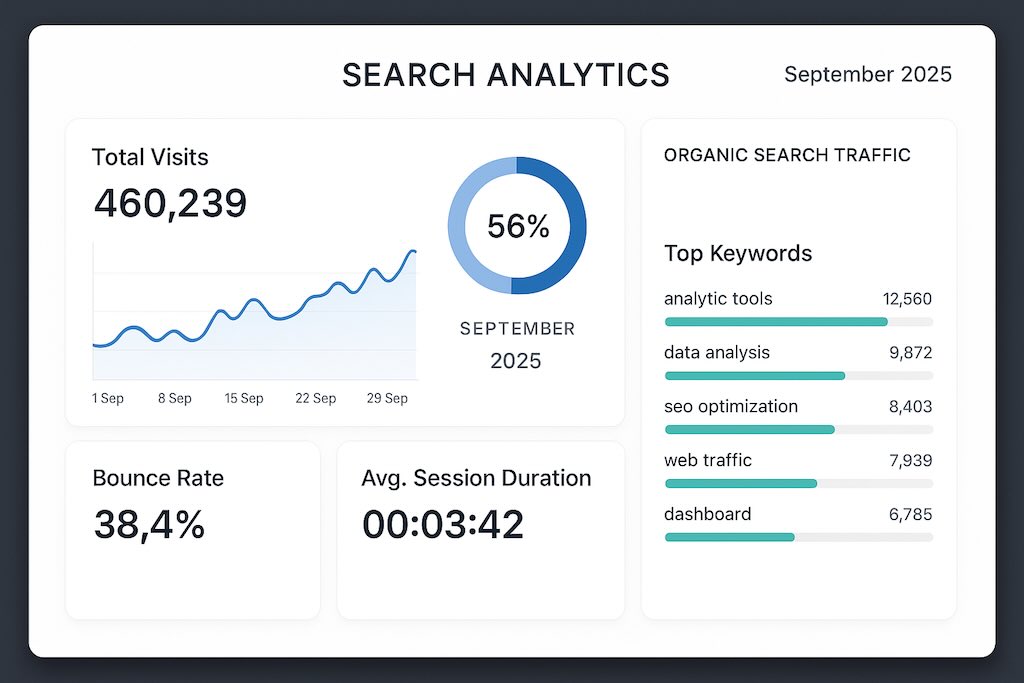Physical Address
304 North Cardinal St.
Dorchester Center, MA 02124
Physical Address
304 North Cardinal St.
Dorchester Center, MA 02124

The digital search landscape experienced a seismic shift in 2025 as Google’s dominance in informational queries declined from 73% in February to 66.9% by August, while ChatGPT usage nearly tripled from 4.1% to 12.5% among U.S. consumers. This dramatic reallocation of search behavior represents the most significant challenge to Google’s search monopoly since the company’s emergence two decades ago, signaling a fundamental change in how users discover and consume information. https://searchengineland.com/chatgpt-ai-tools-gain-google-search-slips-survey-461419
The transformation extends beyond simple platform switching to encompass changing user expectations and search methodologies. Daily AI tool usage doubled from 14% to 29.2% of respondents, while the percentage of users who never use AI tools plummeted from 28% to just 16%. This mainstream adoption of AI-powered search alternatives indicates a permanent shift in information-seeking behavior rather than temporary experimentation.
Platform switching behavior increased substantially, with 35% of users reporting changes in their search habits compared to 28% in February. Young demographics lead this transformation, integrating TikTok, Instagram, Reddit, and ChatGPT into sophisticated multi-platform search strategies that bypass traditional search engines entirely for many queries.
Local search, historically Google’s strongest domain, shows AI tool penetration doubling to 10% of queries. This expansion into geographically-specific information requests demonstrates AI platforms’ evolution from general knowledge tools to practical, location-aware assistants capable of competing with Google’s local business ecosystem.
Reddit’s internal search capabilities have emerged as a significant factor, with weekly usage exceeding 70 million users and AI-powered Reddit Answers growing five-fold to 6 million weekly users in the most recent quarter. The platform’s combination of community-generated content and AI-enhanced search represents a powerful alternative to traditional search engines for specific types of queries.
The fragmentation of search behavior creates unprecedented challenges for web analytics and attribution modeling. Traditional SEO metrics become less meaningful as traffic sources diversify across AI platforms that don’t generate direct website visits. Analytics teams must now track and attribute conversions from AI-generated recommendations, voice assistant queries, and platform-specific AI tools.
Search behavior fragmentation requires fundamental changes to marketing measurement approaches. SEO professionals can no longer rely exclusively on Google Search Console and traditional SERP tracking, as significant portions of their target audience discover content through AI platforms that don’t provide conventional traffic referrals.
The rise of AI Overviews, which now appear in 16% of U.S. searches and reduce click-through rates by 34.5%, compounds these measurement challenges. Businesses must develop new strategies for tracking brand awareness and purchase influence when users receive information without visiting websites directly.
Forward-thinking analytics teams are implementing multi-platform tracking systems that capture AI-driven discovery and engagement metrics across diverse channels. This requires expanding measurement frameworks beyond traditional website analytics to include AI platform mentions, voice assistant interactions, and social media AI tool engagement.
Attribution modeling must evolve to account for AI-mediated discovery that doesn’t generate traditional conversion paths. Advanced organizations are implementing probabilistic attribution models that can infer influence from AI platform interactions even when direct measurement is impossible.
The transformation of search behavior represents more than a competitive shift—it signals the emergence of a new information ecosystem where AI intermediates between users and information sources, requiring analytics professionals to fundamentally reconceptualize how they measure and understand customer journeys.